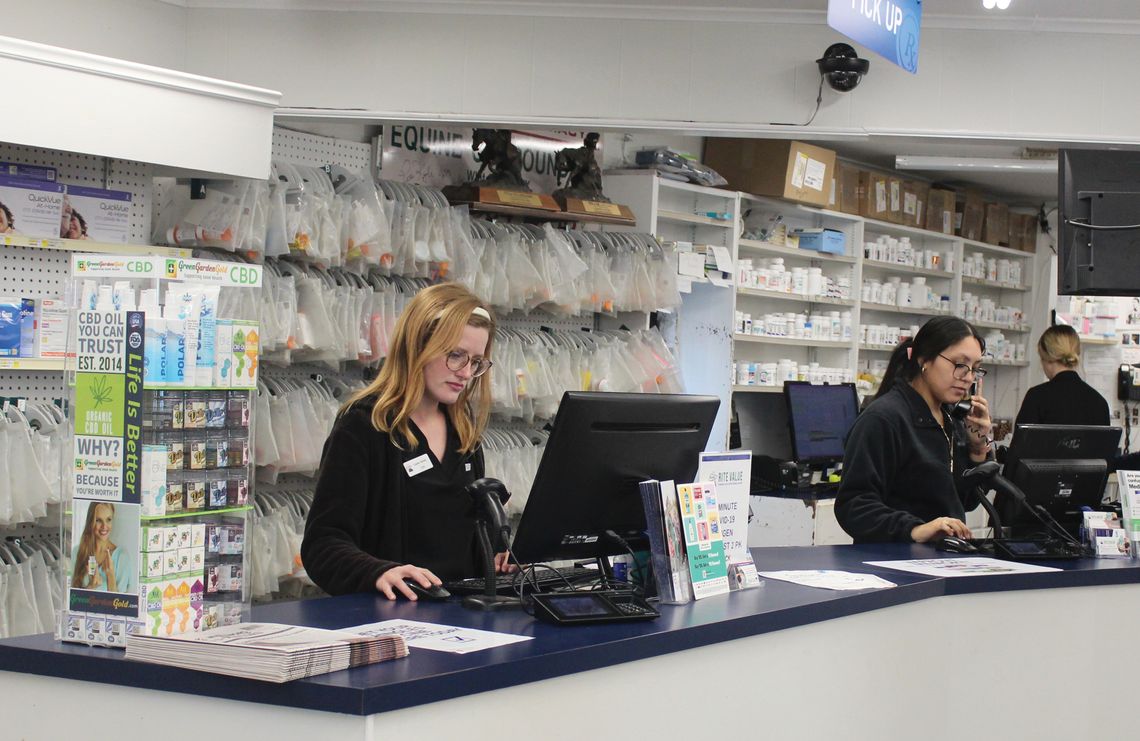W'boro drug stores hold strong in face of industry-wide challenges...
A ruling passed by the Center for Medicare and Medicaid Services (CMS) effective Jan. 1 has caused a serious cash flow problem for independent pharmacies.
Up until recently, pharmacies that filled an insured prescription were charged direct and indirect remuneration (DIR) fees retroactively. Once a patient’s prescription was filled, fees would be billed later – often more than six months after the purchase. Now, the new law calls for DIR fees (also known as price concessions) to take place at point-of-sale (POS).
Unfortunately, pharmacies are simultaneously being charged the retroactive fees until April. This double-dipping is creating financial hardship for many independent pharmacies.
DIR fees are determined by a pharmacy benefit manager (PBM). A PBM is a third-party company that acts as an intermediary between healthcare insurance providers, drug manufacturers and pharmacies. They help to control drug costs, public access to medications and how much payment pharmacies receive.
When a patient gives a prescription to a pharmacy, the pharmacy submits the claim to the PBM. The PBM then communicates with the insurance company and determines what the pharmacy and patient will pay (often below the pharmacy’s net cost or meager profit allowances). Once a patient has purchased a medication at the register, the PBM gets additional compensation that alters the final cost for the payor.
Theoretically, payors can regain money from every POS purchase based on the pharmacy’s performance (determined by a PBM). Since some fees aren’t assessed until more than a year after medication has been dispensed, performance is extremely difficult to identify. It’s also an arbitrary form of measurement that has left pharmacies confused. What constitutes good performance? Is it customer service? The quantity of prescriptions filled? The number of prescriptions picked up by patients? Pharmacies don’t quite know.
The reality is this double-dipping of fees (known as the “DIR hangover”) is significant to the point that pharmacies can lose money by filling a prescription. Additionally, they are unable to accurately predict their prescription reimbursements.
Fortunately, this new legislation doesn’t come as a huge surprise as it was announced in the first quarter of 2023. This allowed time for some pharmacies, like Whitesboro’s Hometown Pharmacy and Axtell Rite Value Pharmacy, to plan ahead.
“Once we learned about this issue, we began stockpiling money to help offset these financial challenges,” Hometown Pharmacy’s manager Cody Knight said.
“Currently, we’re breaking even or losing money on almost every prescription. But based on our estimates, and the estimates of our business coach, I feel confident that we’re going to be okay. We planned ahead and prepared. But this will definitely cause some pharmacies to close their doors or push pharmacists to retire early.”
Some pharmacies are looking for creative ways to offset these cash flow concerns.
“We are signing outside contracts with PBMs and vendors and trying to gain access that way,” Axtell Rite Value Pharmacy CEO/owner Tom Axtell said. “An example of this is Express Scripts for Whitesboro teachers. We had to sign an exclusive contract with them to provide services for the teachers. Still, the problem continues with loss of profit in some cases, but I feel and hope it will have a net gain or break even in the long run.”
In light of these financial challenges, independent pharmacies need customer support now more than ever.
“The biggest thing members of the community can do to support us is shopping in our store for non-prescription items as well as prescriptions (if we are able to accept their insurance). The over-the-counter items that everyone uses really do significantly contribute to our business surviving during these challenging times,” Knight said. “Of course, spreading the word and encouraging support of small business over large corporations is always a great thing for us in any way people choose to do that.”

